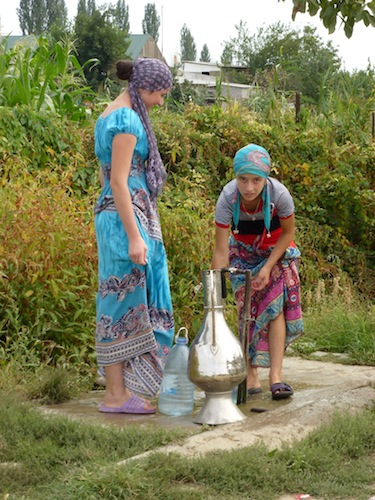Shiri and Sanzhi are highly endangered. The way of life and the economic basis for it have drastically changed. Old traditional handcrafts and ways of life disappear (e.g. terrace agriculture and horticulture) and with them the knowledge and the terminology related to these. Due to the resettlement speakers forget about the microtoponomy. The systems of demonstrative pronouns and spatial preverbs which are very elaborate in Shiri and Sanzhi, including numerous distinctions related to a mountainous environment are not used anymore by younger speakers. This is most probably also due to the fact that in the lowlands, geographical distinctions like ‘up from here’ or ‘down from here’ are less relevant. There is very strong Russian influence on the lexicon, as more and more Russian words replace Dargi expressions. Judging from our material, occasionally younger speakers translate back from Russian into their own language, thereby also adopting Russian word order and other syntactic properties of Russian that are not characteristic for Dargi languages.
Figure 14: Young girls in Druzhba going for water
The project aims at a detailed and in-depth documentation of Shiri and Sanzhi through the collection of texts from a wide range of genres (folklore, fairy tales and myths, riddles, proverbs, songs, oral life histories, pedigrees, procedural texts describing traditional handcrafts and agriculture and spontaneous conversations).
We collaborate on a variety of levels with other linguists and anthropologists from Moscow (Nina Sumbatova, Dmitry Ganenkov), Leipzig (Max Planck Institute of Evolutionary Anthropology) and Jena (Kevin Tuite, Florian Mühlfried), but our main cooperation partners are the Shiri and Sanzhi communities and Daghestanian researchers at the Russian Academy of Science in Makhachkala.



